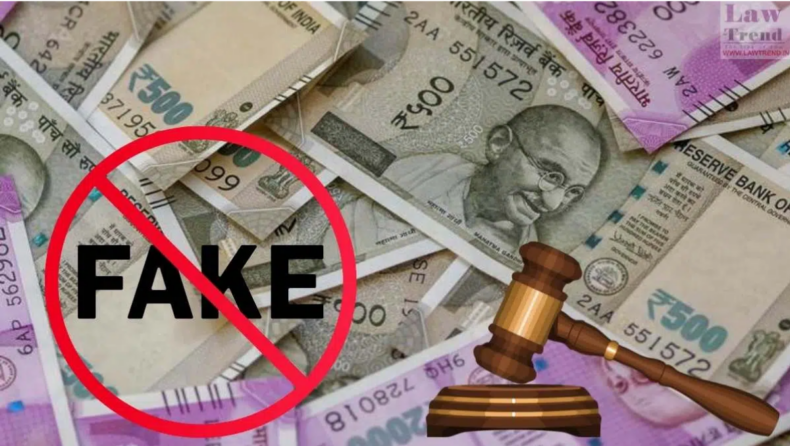The offenders were arrested by the Delhi police in 2016 with 300 counterfeit Indian banknotes worth ₹1000 as a woman there is no preferential treatment given to her because of her gender by the Delhi court and accomplice her to jail in a fake currency case.

A convict cannot claim preferential treatment because of her gender, a Delhi court has ordered a 40-year-old woman and her accomplice to five years in prison for the crime. Trade-in counterfeit Indian banknotes (FICN) in 2016.
Additional sessions Judge Dharmender Rana denied their request for probation, pointing out that the FICN was a “threat to the economic stability” of the country.
Furthermore, the judge found no good reason to treat the convicted woman on a “separate pedestal solely because of her gender.”
One of the basic requirements of a fair trial in criminal law is to provide the defendant with accurate information about the charges against him. This has important implications for the accused in the defence preparation process.
Gender as a woman in fake currency case
In all trials under the Criminal Procedure Code, the defendant is informed of the charge at the outset. In the case of serious violations, the Code requires that allegations be formulated and documented with high accuracy and clarity.
Then read this “accusation” and explain it to the defendant. A charge sheet to inform or inform the defendant, written in the specific language of the law, gives clear and unambiguous or specific notice of the nature of the allegation that the defendant has encountered in the trial process.
Judicial effectiveness in delivering justice to victims of violence is an integral part of the State’s commitment to eliminating violence against women.
In a United Nations (UN) study of 10,000 men who committed acts of sexual violence, on average half of the respondents said they had used physical and/or sexual violence against an intimate partner. women and nearly a quarter of men admitted to raping a woman.
Of men who admit to being raped, the vast majority (72% to 97% in most places) face no legal consequences. When courts do not hold perpetrators accountable, society is more likely to associate violence against women with its cultural identity.
The defence asked for clemency saying she was a woman, but the court ruled, associating herself voluntarily convicting Neetu with nefarious criminal activities despite being a woman cannot claim any favors because of her gender. The partners in sin, who have an equal interest in the profits, can no longer stay apart while reaping the fruits of their sin.
The two convicts were therefore sentenced to five years in prison under Section 498B (use as banknotes or real, counterfeit, or counterfeit) and one year in prison under Section 120B (conspiracy to commit a crime) of the Indian Penal Code. Degrees, respectively. They were also fined 35,000 yen each.
They were stopped by a police team in Delhi on October 2, 2016, after which 300 counterfeit 1,000 yen bills – 297 high-quality counterfeit bills and the rest – were recovered.
During the trial, the defence lawyer raised questions about how to investigate to expect the two defendants to be acquitted.
It is reported that members of the police squad were traveling in a vehicle, but defence lawyers allege that for 11 people – including the police squad and two defendants – traveling in a ‘gypsy’ is impossible.
The court said it was not uncommon to call police cars “gypsy” in common language. Interestingly, he further notes, “It is generally known that we Indians are agreeable and it is not uncommon for passengers traveling together to adjust to fellow travelers. Getting 11 passengers on a vehicle designed to carry just 7 passengers is difficult but not nearly impossible.
On the argument that they were arrested in a crowded place but no public witnesses were called to testify, Judge Rana said: “Usually, members of the public are, obviously, shy these days. appeared and testified.
The counterclaims were therefore dismissed and both defendants were convicted. Additional Justice Minister Irfan Ahmed argued for the state.
Attorney MK Pervez appeared to convict Salim Sheikh and lawyer Sanjeev Bhardwaj represented Neetu’s accuser.













